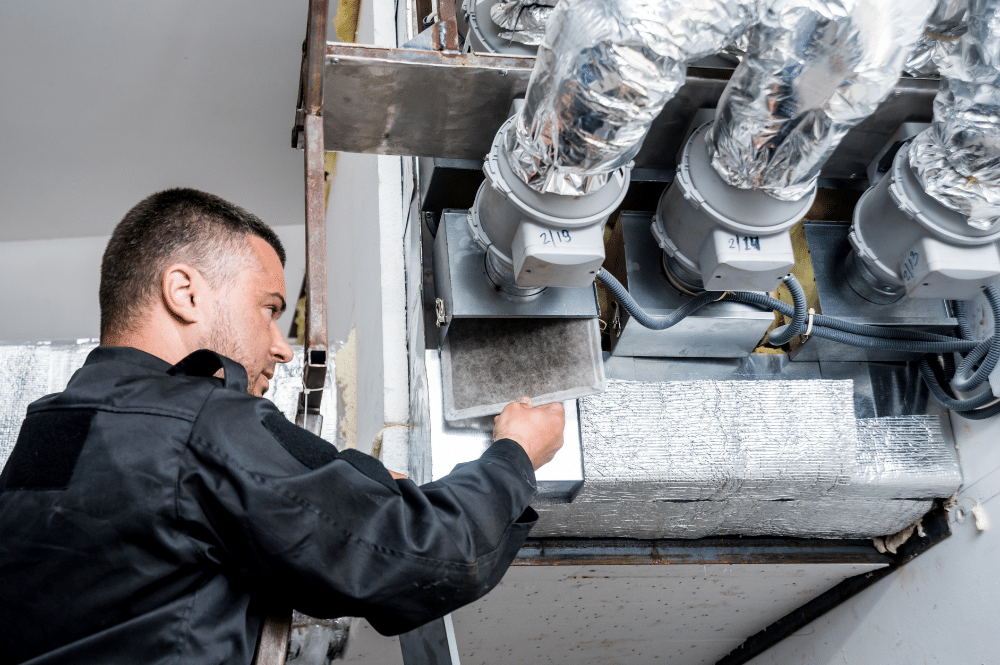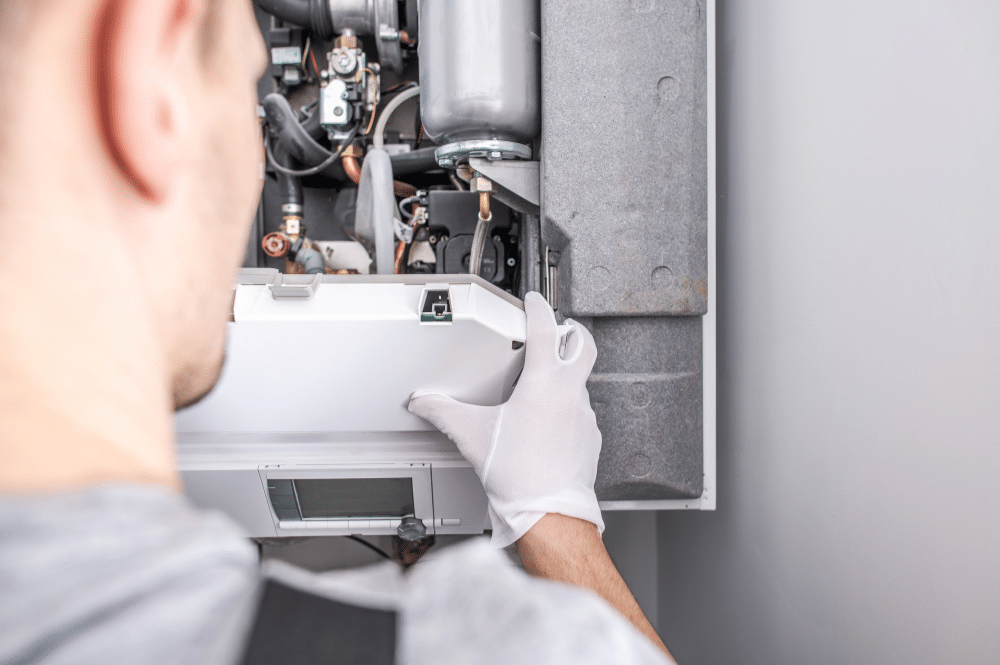An air conditioner condenser is an essential component of a home air conditioning unit. Without the condenser, your AC system would not be able to cool your home during hot summer days. But what exactly is a condenser, and how does it work? Let’s take a look.
How Does an Air Conditioner Condenser Work?
An air conditioner works by drawing heat from the inside of your house, cooling it, and then expelling that heat outdoors. The condenser is part of the system responsible for expelling this heat outside your home. It contains a compressor that compresses refrigerant gas into a liquid state before sending it through the evaporator coils in order to cool the air inside your home. The cooled refrigerant then returns to the condenser, where it is expelled as warm air. This process continues until the desired temperature is reached within your home.
How to Extend the Life of Your Air Conditioner Condenser
If you’re a homeowner or property manager, chances are you rely heavily on your air conditioning system to keep your home or business cool. However, many people don’t realize that the air conditioner condenser is a key component in their system — and it needs regular maintenance to ensure it works properly. Here are some tips for extending the life of your air conditioner condenser.
Check for Leaks Regularly
Your air conditioner condenser should be checked for leaks regularly. If there is a leak, it can lead to low refrigerant levels, which can cause major damage to other parts of the unit. Have a professional check for leaks every six months to ensure your system stays in good working order.
Change the Filters Often
The filters installed in your air conditioning system should be changed every three months, as they trap dust and dirt particles that can clog up the system, reducing its efficiency and causing it to work harder than necessary. It’s also important to keep an eye on the filters and change them more often if they become dirty or clogged faster than usual.
Check Your Refrigerant Levels Regularly
Refrigerant is a crucial element in any air conditioning system — without it, your unit won’t function properly. Have your refrigerant levels checked by a professional every 6-12 months so you know they are at optimal levels for the proper functioning of your air conditioner condenser.
The condenser plays an essential role in making sure that you stay comfortable during hot summer days by expelling heat from within your home. Keeping up with routine maintenance on your air conditioner condenser is essential for keeping it running smoothly and efficiently. By following these simple tips, you can extend the life of this important component of your cooling system while avoiding costly repairs down the line. Regularly checking for leaks, changing filters often, and monitoring refrigerant levels will help keep you cool all summer long.
Understanding Common Air Conditioner Condenser Problems
During hot summer months, air conditioners are our saving grace. But when things start to go wrong, it can become a real headache. A lot of AC problems stem from the condenser unit outside the home. If you’re having trouble with your AC system, the first step is understanding what could be wrong with your condenser and how to fix it.
Noise From the Condenser Unit
If your condenser is making more noise than usual, there may be a few causes. One is that the fan blades may need cleaning or sharpening. Another possibility is that the fan motor has become unbalanced and needs to be adjusted or replaced. It’s also possible that the bearings in the motor have worn out, so if you hear a squealing noise coming from your condenser unit, this could be an indication of a bearing issue that needs to be addressed by an HVAC technician.
Condenser Fins Damaged
Your condenser’s fins are metal plates with grooves that help transfer heat and moisture away from your home while circulating cool air through its coils. Unfortunately, these fins can get bent easily, which will block airflow and reduce the efficiency of your AC system. To fix this issue, you can use a fin comb and carefully straighten out each fin individually on both sides of the coil. This is something you can do yourself if you’re comfortable working around electricity, but otherwise, we recommend hiring an HVAC technician who has experience dealing with fin damage issues.
Dirty Coils
The coils on your condenser are responsible for transferring heat away from your home, so it pays to keep them clean. Dirty coils can reduce energy efficiency and make it harder for your AC unit to cool down your home effectively during the summer months. Cleaning these coils is something you should do at least once every year (or more often if there’s debris buildup) before summer kicks off in full swing. You can use a garden hose to clean off dirt and debris but make sure not to use high-pressure water as this may damage delicate components inside of the coil housing. To prevent further buildup in between cleanings, try using a coil sealant or protector spray once or twice per year as well — this will help keep dirt away longer.
As you can see, there are some common problems that can arise with air conditioner condensers — many of which can actually be handled without professional assistance, such as cleaning dirty coils or using a fin comb to straighten bent fins. However, we always recommend talking to an HVAC technician who specializes in air conditioning repair before attempting anything yourself. Doing so will ensure your safety, and it won’t void the warranty on your condenser.
When Should You Replace Your Air Conditioner Condenser
No air conditioner condenser is going to last forever, and eventually, you’ll need to replace yours. On average, air conditioner condensers will last between 10 and 15 years, depending on the make and model of your system. If your air conditioner is starting to show signs of wear, such as increased noise levels, reduced energy efficiency, or frequent repairs, then it may be time to replace the entire unit. Contact Schneider Mechanical for a free consultation. We can help you with your air conditioner condenser needs and more.




